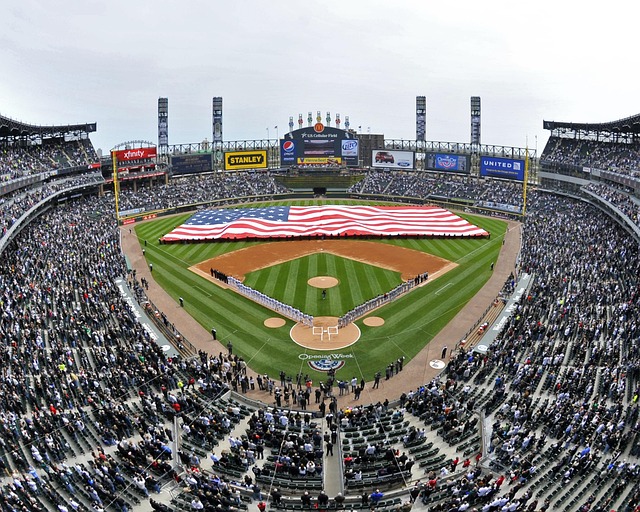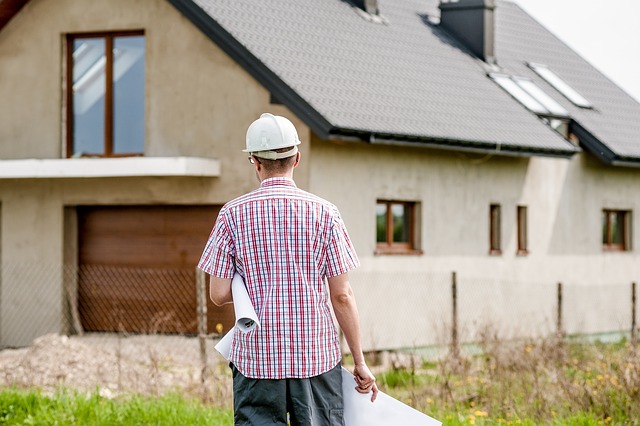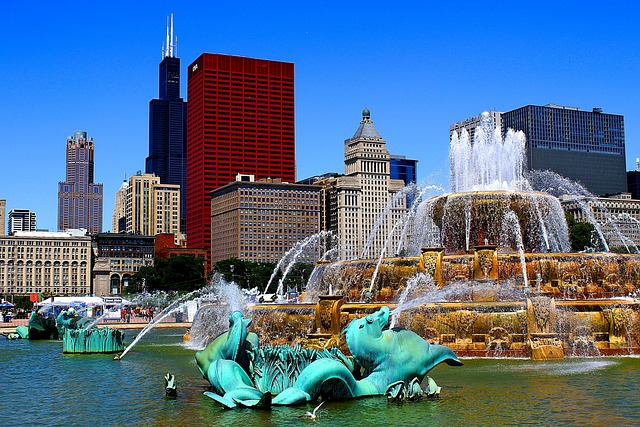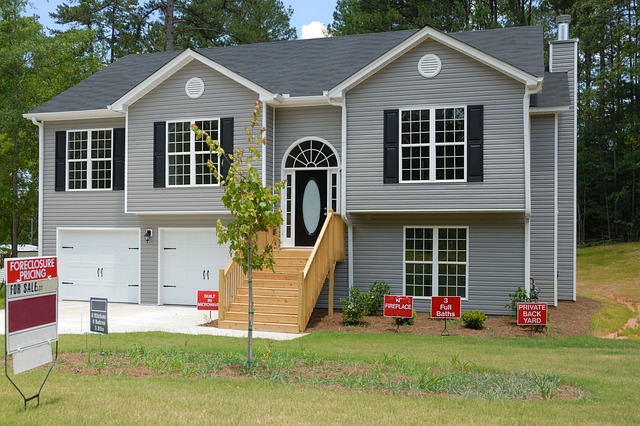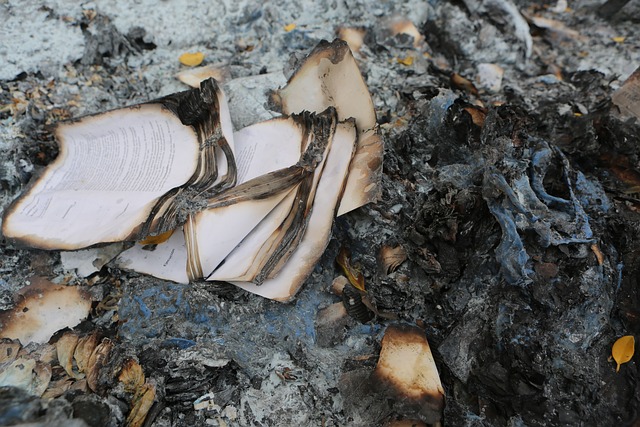Selling a fire-damaged home in Chicago requires navigating a dynamic real estate market influenced by gentrification and various factors. While initial repair costs may deter buyers, the right approach—including thorough inspections, strategic renovations, transparency, and compliance with local regulations—can yield successful transactions. Understanding insurance coverage, documenting damage, and staging homes can enhance appeal. Case studies demonstrate that fire-damaged properties can sell above market value, offering valuable insights for homeowners and agents in Chicago's competitive real estate landscape.
“Uncover the dynamic landscape of the Chicago real estate market, where current trends and unique factors intertwine to shape property values. This article explores the intricate details of navigating a fire-damaged home in Chicago, offering insights into its impact on property value and strategic guidance for sellers.
From understanding the insurance process to local rebuilding regulations, we provide essential knowledge for Chicago homeowners. Additionally, we showcase inspiring success stories, demonstrating that even fire-damaged properties can sell above market value with the right approach.”
- Understanding the Chicago Real Estate Market: Current Trends and Factors Influencing Prices
- The Impact of Fire Damage on Property Value in Chicago
- Strategies for Selling a Fire-Damaged Home: Preparing Your Property for Maximum Exposure
- Navigating the Insurance Process After a Fire: What Every Chicago Homeowner Needs to Know
- Local Regulations and Rebuilding Permits: Ensuring Compliance When Restoring a Fire-Damaged Property in Chicago
- Success Stories: Case Studies of Fire-Damaged Homes in Chicago That Sold Above Market Value
Understanding the Chicago Real Estate Market: Current Trends and Factors Influencing Prices
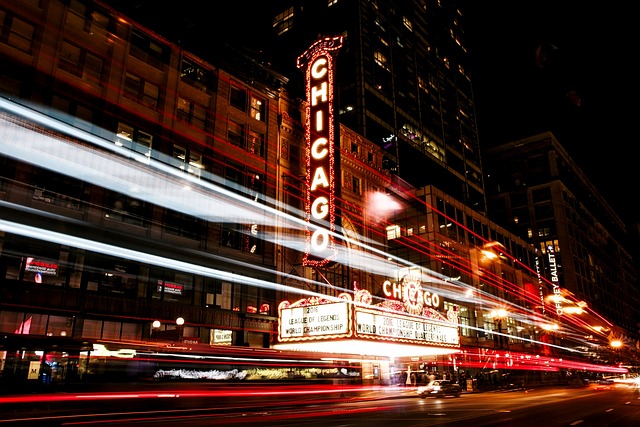
The Chicago real estate market is a dynamic and ever-evolving landscape, influenced by various economic, social, and environmental factors. Understanding these trends and drivers is essential for both buyers and sellers, especially when navigating the unique challenges of selling a fire-damaged home in Chicago. One key trend to watch is the city’s ongoing gentrification, which has led to significant price appreciation in many neighborhoods. This process, while beneficial for property owners in thriving areas, can also create a complex market for those looking to sell homes in historically underserved or impacted communities, such as those recovering from natural disasters like fires.
Fire-damaged properties present specific considerations within this context. While the initial cost of repairing and rehabilitating a fire-affected home might deter some buyers, others recognize the potential for both investment opportunities and unique, customizable living spaces. Factors like location, the extent of damage, and post-fire renovations play significant roles in determining prices. As Chicago continues to grow and evolve, staying informed about these trends and the diverse factors influencing property values is crucial for anyone involved in the real estate market, particularly when selling a fire-damaged home in this vibrant yet ever-changing urban environment.
The Impact of Fire Damage on Property Value in Chicago
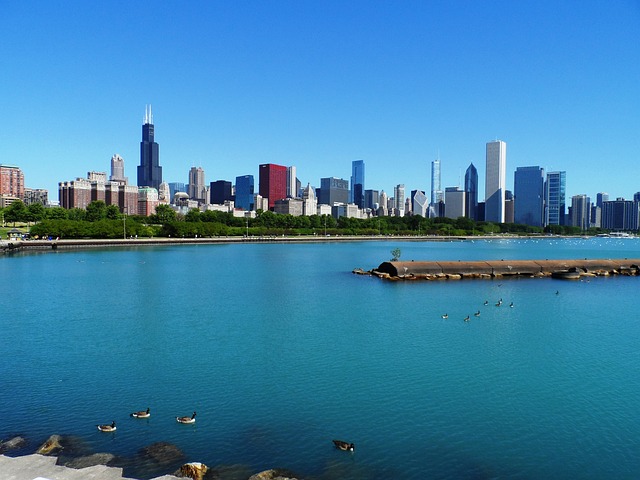
Fire damage can significantly impact the property value of homes in Chicago, affecting both the local market and those looking to sell a fire-damaged home. When a structure sustains fire damage, it not only reduces its overall aesthetic appeal but also poses potential health and safety risks that must be addressed before it’s fit for habitation. These considerations can lead to lower property assessments and reduced selling prices.
In Chicago, where the real estate market is competitive, a fire-damaged home may face challenges in attracting buyers. Repairs and renovations are often required to restore the property to its pre-fire condition, which can be costly and time-consuming. Moreover, insurance claims and settlements might not always cover all the damages, leaving homeowners with additional expenses. As such, selling a fire-damaged home in Chicago requires careful consideration of these factors to ensure a successful transaction.
Strategies for Selling a Fire-Damaged Home: Preparing Your Property for Maximum Exposure
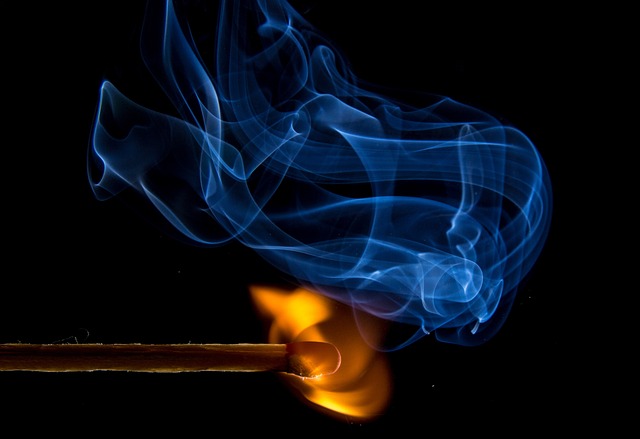
Selling a fire-damaged home in Chicago requires a strategic approach to maximize exposure and attract potential buyers. The first step is to conduct a thorough inspection to assess the extent of damage and create a detailed repair plan. This not only ensures that the property meets safety standards but also demonstrates to prospective purchasers that you are proactive in ensuring the home’s longevity. It’s crucial to prioritize repairs based on their impact on the home’s value, focusing on structural integrity and essential systems first.
Next, stage your home effectively to minimize psychological barriers associated with fire damage. Remove any reminders of the incident—smells, charred remnants, or discolored areas—and replace them with fresh, appealing aesthetics. Consider neutral paint colors, new lighting fixtures, and careful staging to recreate a sense of warmth and safety. Additionally, be transparent about the history of the property and the repairs made, as honesty builds trust with buyers, fostering a positive perception of your home despite its past.
Navigating the Insurance Process After a Fire: What Every Chicago Homeowner Needs to Know

After a fire damages your Chicago home, navigating the insurance process can be overwhelming. As a homeowner, understanding your policy and what’s covered is crucial before making any decisions, especially if you’re considering selling your fire-damaged property. The first step is to review your home insurance policy thoroughly; policies vary in their coverage for fire damage, so check if your policy includes replacement cost or actual cash value for repairs or a total loss.
Documenting the damage and taking photos of the affected areas are essential steps in the process. Keep records of all communication with your insurance company, as well as any estimates for repair or replacement costs. If you decide to sell, be transparent with potential buyers about the fire’s impact on the property. Many homebuyers appreciate honesty and may even offer higher prices due to the unique nature of the home, provided it has been adequately restored.
Local Regulations and Rebuilding Permits: Ensuring Compliance When Restoring a Fire-Damaged Property in Chicago
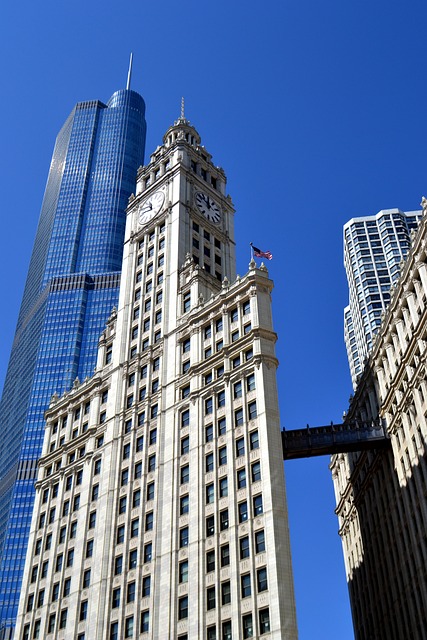
When considering selling a fire-damaged home in Chicago, understanding local regulations and rebuilding permits is paramount for a smooth restoration process. Chicago’s strict building codes and permitting requirements are designed to ensure safety and maintain the city’s architectural integrity. Before restoring any fire-damaged property, homeowners must obtain the necessary permits from the Department of Building and Engineering. These permits guarantee that repairs comply with Chicago’s strict building standards, ensuring the structural soundness and safety of the property.
The permitting process involves submitting detailed plans outlining the proposed repairs, which are then reviewed by city inspectors. This ensures that all work adheres to code, particularly in areas like electrical systems, roofing, and structural repairs. Homeowners should be prepared to provide documentation justifying any deviations from standard practices, especially when dealing with unique challenges posed by fire damage. Proper compliance not only facilitates a faster sale but also protects the buyer’s investment, ensuring the restored property meets all safety and regulatory standards.
Success Stories: Case Studies of Fire-Damaged Homes in Chicago That Sold Above Market Value
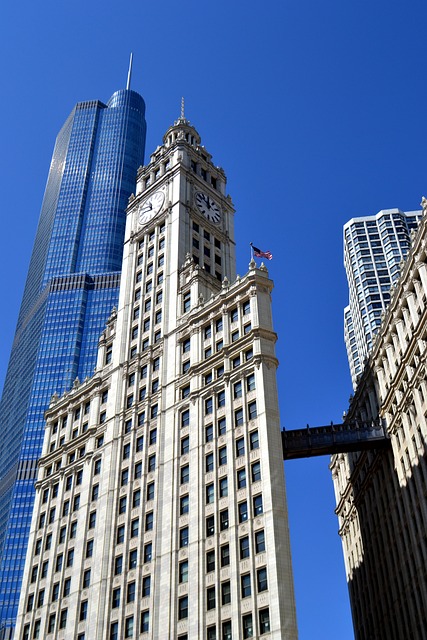
In the competitive Chicago real estate market, what was once considered a challenge—selling fire-damaged homes—has evolved into inspiring success stories. These case studies showcase properties that, against all odds, sold above market value, defying expectations and offering valuable insights for homeowners and real estate agents alike. Despite the obvious setbacks, strategic renovations and clever marketing have proven to be game-changers in these transactions.
Each case study highlights a unique journey, from the initial assessment of damage to the final sale. Homeowners embraced the opportunity to transform their spaces, employing professionals who specialized in fire restoration. The result? Not only were the homes restored to their former glory but often enhanced with modern updates, appealing to buyers seeking both value and potential. This approach has not only facilitated a swift turnaround but also demonstrated that a fire-damaged property can be a prime opportunity for the right buyer looking to create a dream home in the vibrant Chicago market.
The Chicago real estate market, though dynamic, faces unique challenges with fire damage. However, as highlighted in this article, understanding the current trends, insurance processes, and local regulations is crucial for homeowners looking to navigate the sale of a fire-damaged property. By employing effective strategies, such as thorough preparation and compliance with rebuilding permits, Chicago residents can overcome setbacks and even achieve sales above market value. Remember that, when it comes to selling a fire damaged home in Chicago, knowledge and proactivity are key to success.
